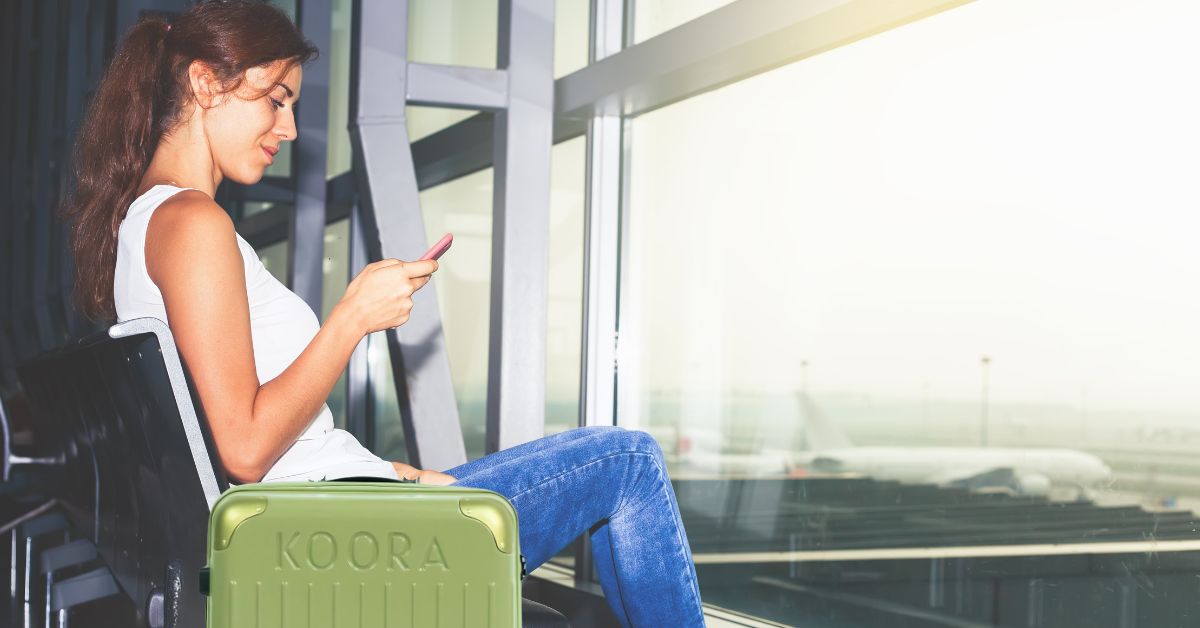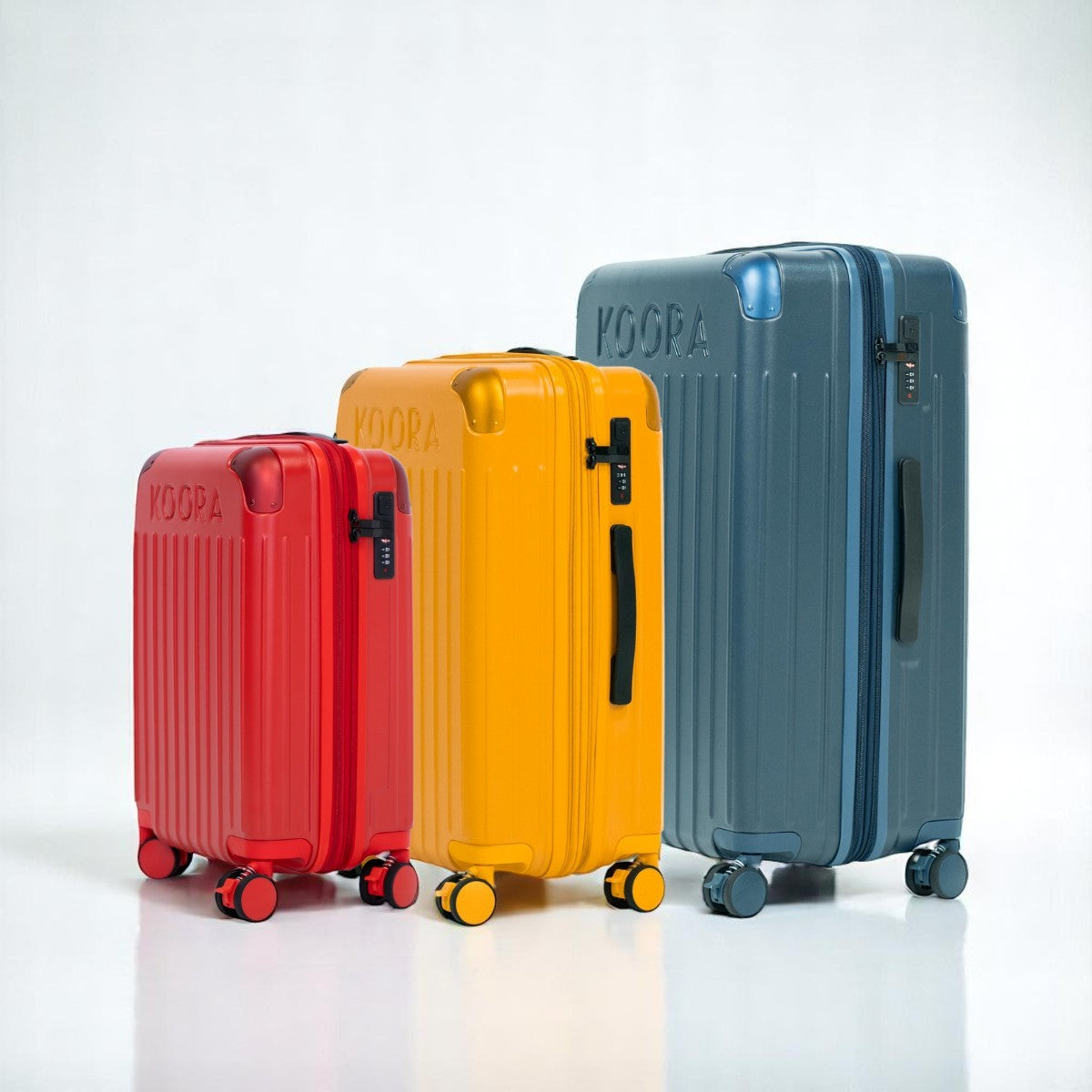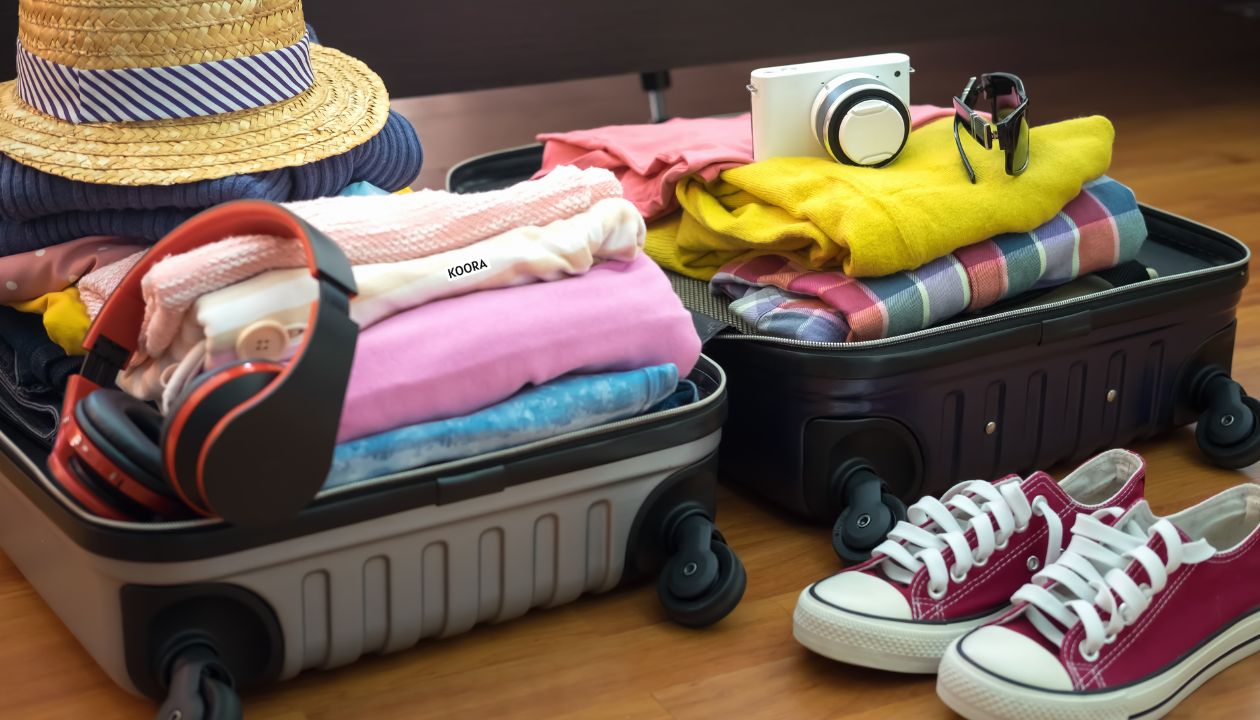
How to Choose the Best Eco-Friendly Suitcase for Your Travel Style
Travel in 2025 puts destination importance in second place because it focuses on the meaningful impact visitors create. Travellers worldwide now focus their environmental concern on the ecological impact of their travel suitcases.

Getting an environmentally responsible suitcase is much more than cutting the use of plastic. Your buying decisions should focus on backing brands that make recycled materials, ethical labour, deliver products with extended lifespan and well-planned design. Your search for sustainable luggage entails more than selecting another item based on your travel style. Every traveller who fits into weekend travellers, business jetsetters, or digital nomads will discover their ideal green-choice luggage.
Let’s walk through how to find it.
Why Choose Eco-Friendly Luggage?
The decomposition of traditional luggage made of virgin plastic materials, PVC materials and synthetic components demands multiple centuries. During the standard manufacturing process for these products, the industrial mass production system ignores environmental and social factors.
Eco-friendly luggage, on the other hand, focuses on sustainable materials, ethical production, and durability. Companies extend their services to enable customers to access maintenance services, opt for carbon emission-free shipping with packaging materials free of plastics.
The environmental gains from sustainable luggage usage become most substantial because regular travellers benefit most from adopting them.
Step 1: Understand Your Travel Style
To find the right eco-conscious suitcase, start by assessing how you travel most.
Are you a weekend explorer? No worries, the bag you need should be portable, compact and lightweight. Search for minimalist backpacks or duffels constructed using recycled PET bottles because these items work perfectly for short trips while staying lightweight.
Do you travel for work? Professional travellers should choose a hard-shell carry-ons that have space for a laptop, combined with built-in charging systems. You should select brands that feature smart technology, eco-friendly substances that include vegan leather and recycled polycarbonate.
Love the outdoors? Adventure travellers should choose weatherproof gear, which includes expanded backpacks produced from recycled nylon or ocean plastic materials. The durability and water resistance features will take priority over luxury specifications.
Live a digital nomad lifestyle? You must look for an organised and tough suitcase that has spaces to fit technology and clothing, and possibly packing cubes. The combination of smart features, together with ethical production and extended lifespan, brings a sense of satisfaction.
Step 2: What to Look for in a Sustainable Suitcase
After determining your style, choose materials, certifications and features that create an authentic, eco-friendly suitcase.
Sustainable Materials Matter: Look for luggage made with:
-
Recycled polycarbonate or aluminium for durable shells
-
RPET fabric (recycled from plastic bottles) for soft exteriors or lining
-
Recycled nylon or canvas for outdoor-ready bags
-
Vegan leather for trim and detailing
These materials reduce dependence on virgin plastic and lower emissions during production.
Certifications Build Trust: While some eco-claims are vague, reliable brands back up their promises with certifications. These include:
-
GRS (Global Recycled Standard)
-
Climate Neutral Certified
-
B Corp (proving high social and environmental performance)
-
OEKO-TEX for textile safety and sustainability
Durability is Sustainability: Even the greenest suitcase isn’t sustainable if it breaks after one trip. Seek out brands that:
-
Offer lifetime warranties
-
Have repair programs or replaceable parts
-
Focus on repair over replacement.
Low-Impact Production Practices: Consider brands that disclose their supply chain and environmental impact. Those using renewable energy, water-saving processes, or ethical factories are typically more trustworthy.
Sustainable Features That Make Travel Easier: Certain eco-friendly suitcases integrate helpful features such as solar-powered USB ports, modular compartments and compression-friendly interiors. Finding sustainable features that do not sacrifice functionality should be the main priority when making your choice.
Eco-Friendly Brands Worth Exploring
Several forward-thinking brands are leading the charge in sustainable luggage:
Koora: Koora is one of 2025’s rising stars in eco-conscious travel gear. The carry-ons are crafted from 100% recycled materials. Koora offers smart, expandable luggage with modular interiors, all in a minimalist design with compostable packaging. It's perfect for business travellers, digital nomads, or anyone who wants smart and stylish sustainability. For every purchase you make, $2 from it goes to Greenfleet to plant a tree in a legally protected area in Australia to help in restoring the environment.
Paravel: Known for their beautiful and functional luggage, Paravel uses recycled materials and offsets the carbon footprint of their products from manufacture to delivery. Their Aviator collection is vegan and incredibly photogenic, great for urban travellers or style-conscious weekenders.
Monos: With a focus on simplicity and quality, Monos uses recyclable polycarbonate, vegan materials, and non-toxic finishes. Their luggage is designed to last and backed by strong repair policies—ideal for travellers who appreciate both minimalism and integrity.
Solgaard: Famous for their “Carry-On Closet,” Solgaard’s bags are made with ocean-bound plastic and include clever built-in organisation systems. With each purchase, the company removes five pounds of plastic from marine environments.
Tropicfeel: Built for the modern adventurer, Tropicfeel offers hybrid backpacks and travel gear made from recycled textiles. Many of their bags are modular, water-resistant, and expandable—perfect for hiking trips or unpredictable weather.
Step 3: Match Luggage Features to Your Travel Habits
After learning about materials and brands, you should choose features that align with your daily routines.
A recycled duffel or backpack designed for fast travel will suit your needs if you stick to minimal packing. A smart, recycled hard-shell suitcase with organisational compartments becomes your best choice when dressing up while carrying electronics. If you’re living out of your bag for weeks, prioritise versatility and internal structure—compression panels, packing cubes, and removable storage elements.
And always consider weight, size limits, and durability. A lightweight suitcase is better for air travel (less emissions from carry weight), while sturdy materials mean fewer replacements and less landfill waste.
Final Thoughts
Selecting a better quality, eco-friendly suitcase requires more than just an ordinary shopping decision because it creates a statement about your travel identity. Your values unite with your habits when you flaunt sustainability and usefulness in everyday travel.
By investing in long-lasting, responsibly made luggage, you’re reducing your environmental footprint every time you pack. You’re also supporting brands that are changing the travel industry for the better.
So next time you’re gearing up for a trip, ask yourself:
Is my suitcase working for the planet, or against it? Because travel isn’t just about where you go, it’s about what you bring, and what you leave behind.



Leave a comment
This site is protected by hCaptcha and the hCaptcha Privacy Policy and Terms of Service apply.